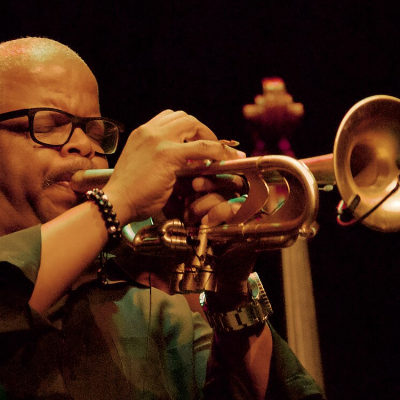Unusual Departures
(I) Comfort Funeral Home
Johnny misses Mummy-
send in Ruffy
to offer canine solace.
Grandpa misses Grandma-
send in Bambi
to offer female comfort.
(II) Letterman Funeral Home
To comfort the mourners
waiting in the Green Room,
Dave will bring out Snuggles
from Lincoln, Nebraska
to perform his Stupid Pet Trick.
Afterward, Jack Hanna
will exhibit a coatimundi from the Columbus Zoo.
In the chapel,
Dave will list the Top Ten Reasons
why we miss Allen Russ,
then Tom Hanks will tell funny stories
about the dearly departed.
Did You Know?
Did you know…
that Dr. Spock
did not invent
the child-care book?
….that Henry Ford
did not invent
the passenger car?
…and Hugh Hefner
did not invent
the naked woman?
In the New, Old-Fashioned Way
“…in the new, old-fashioned way.”
Jennifer’s cellular ring tones
recall her mother’s Princess phone.
Jimmy surfs the Internet,
finds a Rat Pack website.
Intellectual Levels
Support advanced research,
neglect basic education.
Produce artificial intelligence
and real ignorance.
Three for Trois-Rivières
“Thank you for Being a Friend”,
(THE GOLDEN GIRLS’ main theme)
played out in its entirety,
down in central Trois-Rivières.
Don’t ask where, don’t ask why.
Menuet Oriental serves quail
favored by the wasps that sting.
Outside, the cosmopolitan man
turns into Mr. Bean.
Jeffrey poses for his mug shot
in the Old Prison Museum,
guilty of being carried away
tourism in the first degree.
Hole-in-the Wall
In downtown Detroit,
the “hole-in-the-wall” store
sells tacky lingerie.
Local pimps pass by,
prepare their Christmas lists.
A Snide Integrity
“You buy the premise,
you buy the bit.”
-Johnny Carson
Can you really trust
a restaurant named Popeye’s
that doesn’t feature spinach?
Will you view
the Nineties remake
or pass it by,
knowing David Janssen
was the only FUGITIVE?
Do you want
the black KOJAK?
A female McCloud?
Or wonder,
with snide integrity,
if Jim O’Hara,
of O’HARA, U.S. TREASURY,
will also return,
this time portrayed
by a female zebra.
Sociologist’s Jargon
Heed the professor
and “…try to say…
‘He is using a cop’s role,’
…rather than…’He is a cop.'”
I am not a poet,
I am using a poet’s role.
The professor is not a jackass,
he just uses the jackass role.
Creative Casting
Author: Eugene Fodor
Book: Fodor’s Europe 1970
Chapter: Great Britain
Characters: New York teacher
and London bus conductor.
Setting: Late 1960s,
London double-decker bus.
Teacher, “You are no gentleman…”
Driver, “I never said I was.”
Imagine Katharine Hepburn,
Hollywood immortal,
as the infuriated teacher
and Reg Varney,
driver “Stan” from On the Buses,
as the exasperated conductor
Huckleberry Hound Revealed
Viewing a children’s cartoon,
through your own adult eyes,
you watch Huckelberry Hound
cavort with Corny the Rooster,
mascot for Kellogg’s Corn Flakes.
Then the disillusion hits,
when you see your boyhood hero,
for the “sell-out” that he was.
TV Land Reality TV
Classic TV…
escape from reality.
TV Land…
escape from reality TV.
Reality TV program
comes to TV Land,
depressing those
who do not care
for John Doe
and Richard Roe
from Kokomo,
preferring Jed, Granny,
Elly Mae and Jethro.
The Boneless Cat
“…a boneless cat.”
-description of an unsuccessful “Peanuts” character
Charles Schultz,
creator of “Peanuts”,
added a cat
to his mix
of kids, dogs and birds.
It was worse than lame-
in more ways than one-
and simply vanished
after a few appearances.
We all keep our boneless cats
buried in our backyards.
The Network Talk Show Host
The network talk show host
labored ceaselessly,
making his job look easy.
becoming a TV fixture,
while on the air
and a cultural icon,
forever afterward.
Classic TV Co-Star
Classic ABC-TV:
I’M DICKENS, HE’S FENSTER,
starring John Astin as Dickens,
Marty Ingels as Fenster
with Henry Beckman as Mulligan.
Toronto, decades later.
I greet Henry Beckman.
He half-snarls back,
like an incoherent drunk.
Act like a mensch,
act like a schmuck,
To the Classic TV fan,
it still makes a good story.
Obsolete Assumptions
(I) The Lusty Prosties….
“The Lusty Prosties of Lazy Little Laos”- feature article in a 1960s men’s magazine.
The politically correct mind boggles,
multiplying a sense of entitlement
by arrogant expectations.
(II) ….of Lazy Little Laos
A self-serving cliché,
rendered obsolete
by the Communist regime
that rules that Asian state.


































